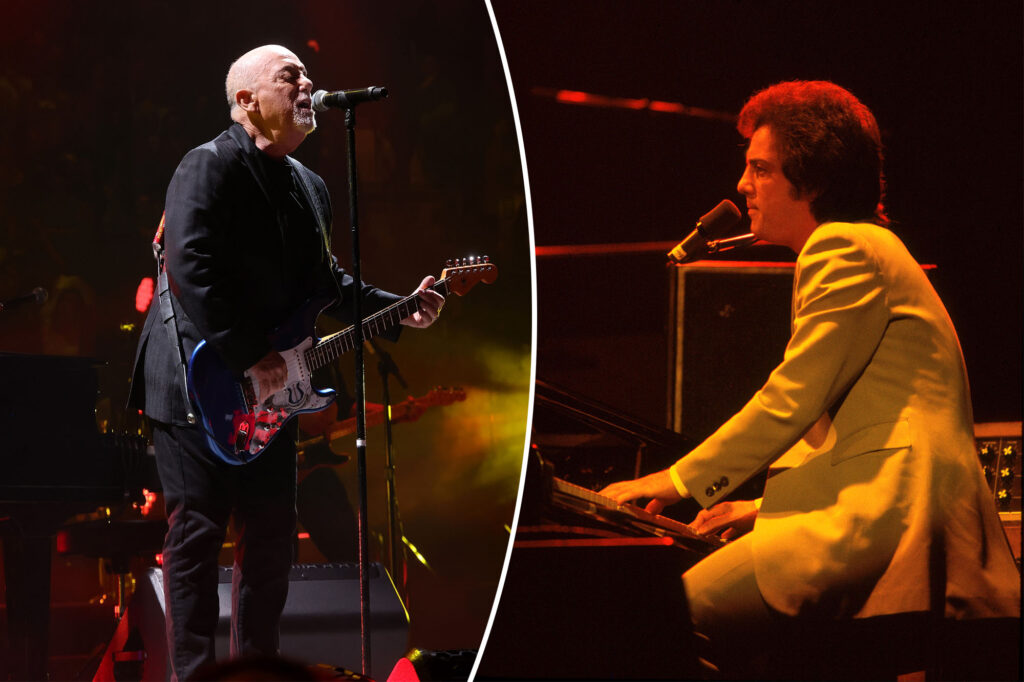So long, you crazy child.
Billy Joel’s legendary 10-year residency at Madison Square Garden draws to a close on Thursday in New York City.
Over the past decade, Joel, now 75, has played 104 sold-out shows and sold 1.9 million tickets, becoming synonymous with the world-famous arena like the Knicks and Rangers.
Throughout his storied career and into his residency, Joel has upheld a distinctive practice: he does not sell front row tickets to his shows.
Joel explained in a 2014 interview with Billboard that this decision was to ensure that tickets end up in the hands of genuine fans.
“We never sell front rows, we hold those tickets at just about every concert. For years, the scalpers got the tickets and would scalp the front row for ridiculous amounts of money,” he said.
“I’d look down and see rich people sitting there, I call ’em ‘gold chainers.’ Sitting there puffing on a cigar, ‘entertain me, piano man.’ They don’t stand up, make noise, sit there with their bouffant haired girlfriend lookin’ like a big shot,” he continued. “I kinda got sick of that, who the hell are these people, where are the real fans? It turns out the real fans were always in the back of the room in the worst seats.”
To address the issue, Joel’s team selects fans from the back of the arena and moves them because they are the ones “really happy to be there.”
“We now hold those tickets, and I send my road crew out to the back of the room when the audience comes in and they get people from the worst seats and bring ’em in to the front rows,” he detailed. “This way you’ve got people in the front row that are really happy to be there, real fans. We’ve tried to figure out how to beat the scalpers for years and years, hold off selling until the last minute, the wristband thing, limiting the amount of tickets people can get.”
Despite the financial loss, as this approach costs Joel thousands of dollars every night, he has found it worth it seeing real fans react to his performances.
“They make the best audience, they make the most noise, they’re the most enthusiastic. It’s just hard to get to them any more. I tell the audience every night, ‘I hope you didn’t pay more than face value on that ticket, because we ain’t worth more than that, and you ain’t gonna get any more than that,’” the “Piano Man” singer said at the time.
“About 25 years ago, I got tired of looking down [at the crowd],” he said during a 2017 appearance on “Jimmy Kimmel Live!”
“The first-row tickets are always scalper tickets — always somebody who paid way too much money to be a big shot, sit in the front row.”
Joel truly has a “New York State of Mind,” having moved to the Levittown section of Hicksville, New York, when he was just 1. He titled his debut LP, 1971’s “Cold Spring Harbor,” after a town on Long Island, and the album cover features a portrait of the young artist on Harbor Road in the hamlet.
The “Uptown Girl” singer first headlined Madison Square Garden on Dec. 14, 1978, shortly following the release of his album “52nd Street.” The singer made himself right at home at his local arena just as “My Life” was living large on the charts — quickly becoming a legend in the concrete jungle.
His monthly residency at the Garden began on Jan. 27, 2014, his first of 149 more shows. It continued with a hiatus due to the pandemic in 2020 before resuming again in November 2021.
“We’re back in the Garden. I want to thank you for waiting,” he told the crowd at the time. “Sorry that we shut everything down, but we’re back.”
Nearly three years later, Joel is reflecting on the end of his legendary residency run.
“I’m kind of flabbergasted that it lasted as long as it did,” he said in a press release when he announced its end last year.

